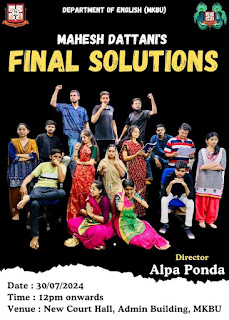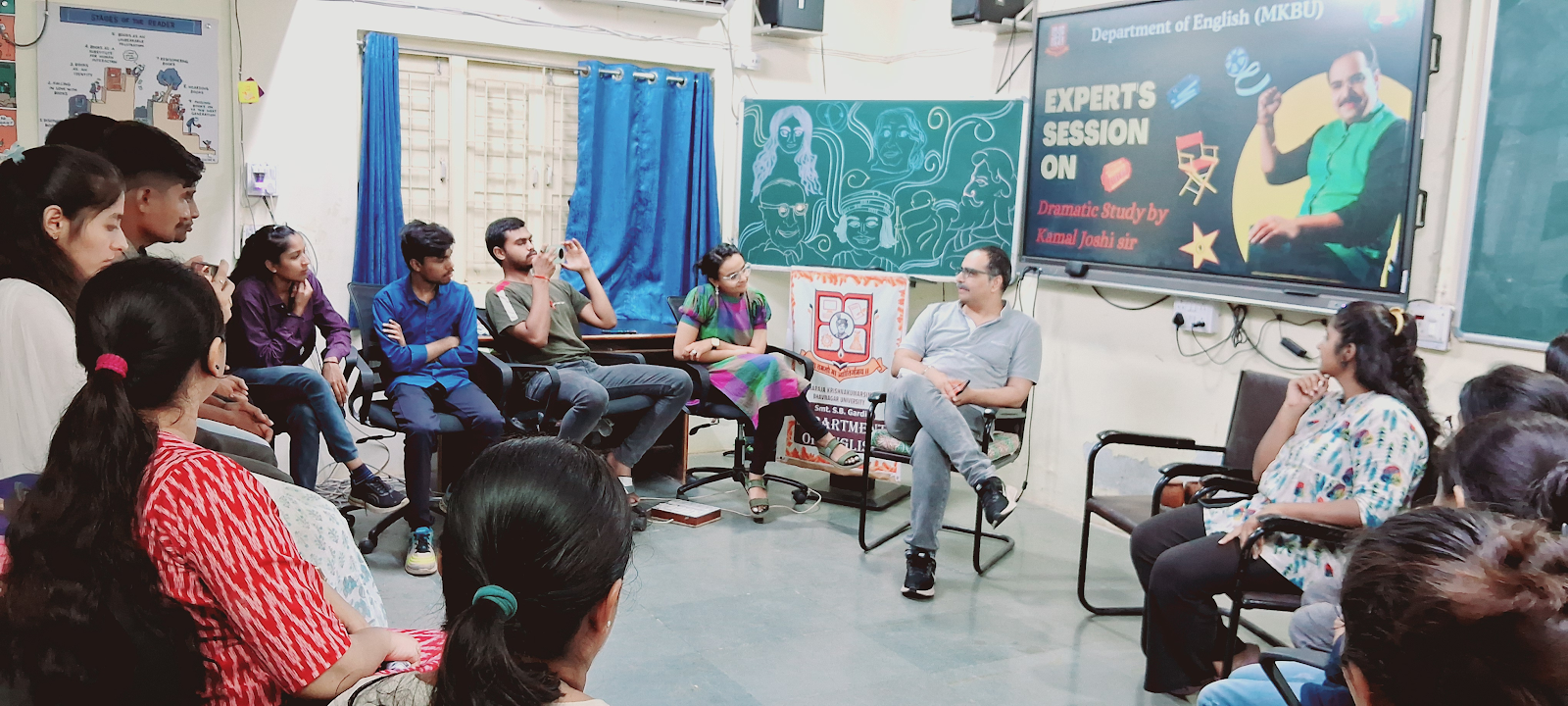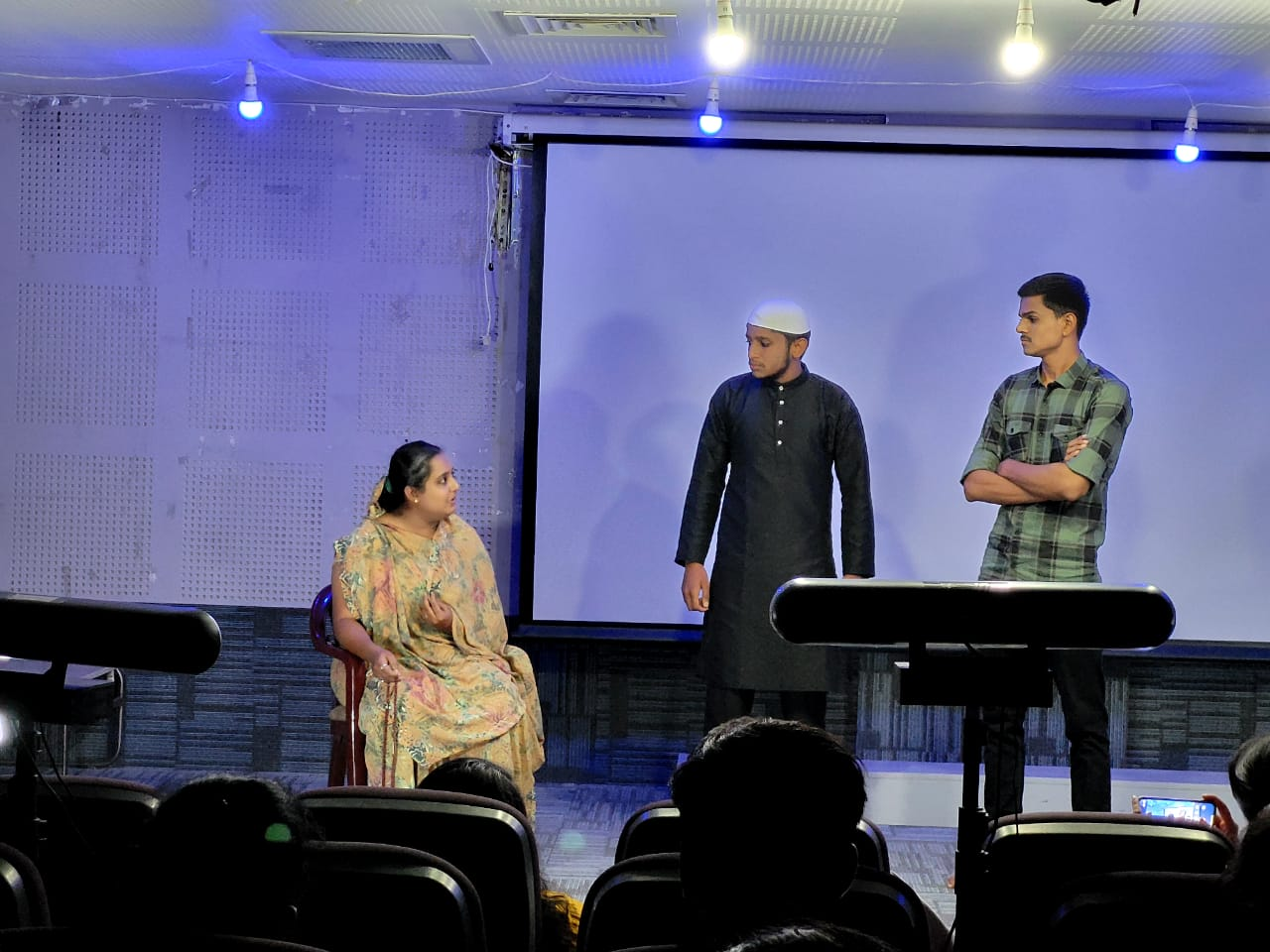
-Assigened by Prakruti Ma'am.
About Mahesh Dattani :

Mahesh Dattani (born 7 August 1958) is an Indian director, actor, playwright and writer. He wrote such plays as Final Solutions, Dance Like a Man, Bravely Fought the Queen, On a Muggy Night in Mumbai, Tara, Thirty Days in September 2007 and The Big Fat City.
He is the first playwright in English to be awarded the Sahitya Akademi Award. His plays have been directed by eminent directors like Arvind Gaur, Alyque Padamsee and Lillete Dubey.
Dattani makes a bold move when he choses to address the issues concerning gender discrimination. His writings then become important when you wish to explore how deeply certain stereotypes are rooted in society.
Questions -Answers :-
- Reflect on your journey through Final Solutions as a student of theatre. How did the process of studying, rehearsing, and performing this play shape your understanding and appreciation of theatre?
The Department of English organized a drama workshop from July 15 to 22, 2024. This was my first time participating in such a workshop, and while I had heard about it before, being a part of it was a completely new experience.In the first three days, we focused on tone and intonation in speech. On the second day, we prepared a small solo performance and received feedback from our instructor, which helped us improve. We learned to use our bodies as props and explored body movement, stage presence, and stagecraft, including the importance of wings and staging in drama.







- How does Mahesh Dattani manipulate time and space within the dramatic framework of Final Solutions to create meaning? Explore the interplay of these elements with specific reference to the stagecraft techniques employed by the playwright.
Mahesh Dattani carefully crafted the stage setup from the beginning, indicating how the characters should sit and stand, and even suggested a ramp for the chorus to stand on, representing the outside world. The chorus symbolizes the masses, shifting between Hindu and Muslim identities.
The central character, Hardika, uses her diary to revisit the past, and Dattani cleverly manipulates time through this. Daksha, who had a bitter experience with Zarin and her family in the past, connects this with the arrival of two Muslim boys in the present. Her loss of her father is constantly tied to these memories, and whenever something reminds her of the past, she mentally returns to that time. The boys' presence brings back painful memories of Zarin's family.
As these memories resurface, Hardika asks the boys to leave her house, and her deep-seated hatred emerges, fueled by the domestic violence she suffered from her in-laws. Dattani captures this shift in time by placing Daksha in the background and Hardika in the foreground. Noor Jahan's songs link Daksha and Hardika, while Ramnik uses papers to connect with the past. Dattani uses the ramp to symbolize the outside world, and the house as a microcosm of society, where open-minded individuals like Smita, Ramnik, and Bobby clash with biased ones like Javed, Hardika, and Aruna.



- Examine the complexity of guilt experienced by the characters in the play. How does this emotion shape their actions and relationships?
The play "Final Solutions" shifts between past and present to reveal Hardika's inner conflict. She struggles to let go of her past. Through her diary, she revisits her memories, trying to justify her current behavior towards the two boys. She believes that these boys, along with the entire Muslim community, are to blame for what happened to her father in the past. In one of her dialogues, she even mentions that both Javed's sister and Zarin deserve to be punished.
Hardika also reflects on her early days as Daksha, recalling how poorly she was treated by her husband, Hari, and her mother-in-law. When it comes to portraying these elements on stage, it can be challenging. We addressed this during our performance by using lighting techniques, stage positioning, and costumes to convey the shifts in time and emotion.

Group Photo :






No comments:
Post a Comment